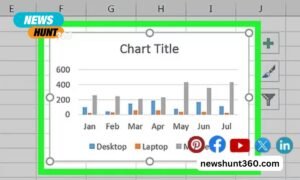Back in my globetrotting days keeping touch with people was one of the most challenging parts, finding reliable internet options in some places just wasn’t an option so I relied heavily on using international calling cards.
Some people prefer to use the latest tech an that’s fine but personally I don’t care if it’s two cups with a piece of string connecting them together, I care only for what works and calling cards have helped me connect to people when all other communication channels failed so I always keep them as a part of my travelling kit.
Who would benefit from international calling cards?
Contents
Travellers
If your travelling then I would highly recommend having a calling card on hand as a backup just in case you’re calling from more remote areas.
Moved to another country
If you’ve just moved to another country then having and international phone card is a great option.
If you’re calling back to one of the top tier countries like New Zealand, Australia, United States, Japan, China, India, Hong Kong, Canada, UK, South Africa, etc. then you may not need a phone card because a lot of mobile plan providers may give generous minutes to these countries.
For anywhere else, international phone cards are brilliant.
But beware of companies that offer less than favourable service when it comes to calling cards.
In this article, I’ll give you my best tips for purchasing the best international phone card without being scammed.
4 Tips On How To Find The Best International Calling Cards
-
Connection fees
A connection fee is a fee that is charged that is deducted from the phone card once there is a “successful” connection.
I’ve placed successful in quotes because a successful connection could be one of three things:
- The person you want to speak to answers your call
- You get a voice message
- The person you don’t want to speak to answers the phone i.e. you get a crossline where your call somehow is connected to another person in another country (technical fault)
In each of these cases your card will be charged that connection fee.
In the 3rd case it’s best to avoid making further calls and to call the customer service team to get the card issue resolved because it’s likely that the problem will continue.
Are connection fees bad? Not necessarily, what you’ll likely find is that calling cards with connection fees will tend to have a slightly lower per minute charge so if you’re making long duration calls 40 plus minutes then it may work out cheaper.
-
Customer service
I recommend using an online provider and calling their customer service team to find out:
How responsive they are. If you’ve tried a few times to call them and they still haven’t got back to you then should you have technical difficulties then you’re unlikely to get the problem resolved.
Ask them how long it takes to resolve tech problems. Ideally technical issues should be resolved that same day, if it takes them a few days or weeks then avoid buying that card.
Refunds. Ask them what their refund policy is and what does it cover.
Delivery. How long will it takes to receive your card once purchased? Will they deliver it by mail or send it to you via email?
Local access numbers. Local access numbers is the number you call to access the phone card service. Where are their local access numbers located? They might have local access numbers that are not within your area making the card useless.
-
Per Min Rates
There are two main things to look for:
- What is the per minute rate
- What is the billing block?
The billing block simply means in what increments will you be charged, for example, if the billing block is 4 minutes then you’ll be charged the per min rate every 4 minutes. If you per min rate is 10 cents then 40 cents will come off your card every 4 minutes.
May not seem like a big deal on the surface but this will eat away at a surprising amount of credit.
For example if you’re call is only 1 minute then you will be charged 40 cents so unless you’re ending your call on the 3:59 of every call then you’re going to be losing credit guaranteed.
Try to find a card that charges in 1 minute billing increments if possible.
-
Other Hidden fees
Calling card companies will generally make a good amount of money from additional fees to offset their slim margins from calls.
Here are the most common calling fees you’ll run into:
Connection fees – this one is the most common and may not necessarily be a bad thing especially if the calling rates are lower and you typically make long duration phone calls.
Admin fees – avoid companies that charge admin fees because they are nothing more than free money for that company.
Expired credit – as with all of the cards (credit, passport, etc.) phone cards will have a hard expiration date which is not a problem, the problem is what happens to any remaining credit on the card when your calling card expires.




